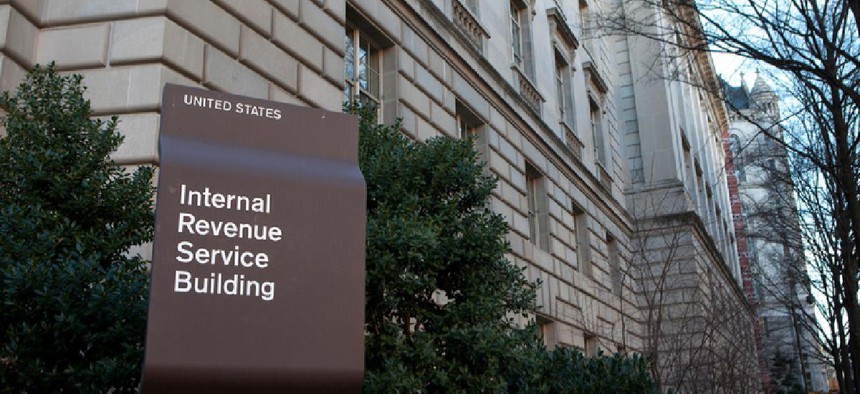New law brings big change to IRS in IT, cyber

A new law will implement a raft of technology and cybersecurity reforms at the IRS while also restoring hiring authorities that officials say are key to attracting qualified IT talent.

A new law will implement a raft of technology and cybersecurity reforms at the IRS while also restoring hiring authorities that officials say are key to attracting qualified IT talent.
The Taxpayer First Act, signed into law by President Donald Trump July 1, restores the agency's streamlined critical pay hiring authorities through 2025. The program allows IRS to sidestep normal federal hiring protocols to quickly make new hires and offer substantially higher pay -- as much as $240,000, according to the Treasury Department's inspector general – to candidates with cybersecurity and tech backgrounds.
Multiple commissioners -- including current Commissioner Charles Rettig -- have pled with Congress to restore the authorities after they lapsed in 2013, saying they will be needed as IRS embarks on a number of major IT modernization and cybersecurity enhancements over the next half-decade.
On the modernization front, the Taxpayer First Act would call for independent oversight of 'the tax agency's oft-troubled Customer Account Data Engine 2, or CADE2. That system is meant to replace the 60-year-old Individual Master File as the agency's primary system for processing electronic tax returns, but the program has encountered numerous delays over the years. The law gives IRS a year to contract with an independent reviewer "to verify and validate the implementation plans," including performance milestones and cost estimates.
The law also contains language formalizing the IRS CIO's role as the primary official in charge of development, implementation and maintenance of information technology at the agency and directs the agency's chief procurement officer to notify and consult with the CIO for all IT purchases over $1 million.
The agency recently unveiled a six-year IT transformation plan that is expected to cost $2.7 billion, and appropriators have expressed wariness about funding the endeavor without assurances that the IT and purchasing shops are working in tandem. Past audits have found that IRS has wasted millions of taxpayer dollars purchasing software systems and licenses that it either never used or didn't meet agency requirements, while CIO Gina Garza told Congress she wasn't consulted about a $7 million bridge contract for fraud prevention and e-authentication services awarded to credit agency Equifax in 2017 shortly after the company announced it had been hacked.
Cutting down on identity theft and return fraud has been a major priority for IRS in recent years. While officials have credited closer cooperation with industry and alterations to software systems like the Return Review Program for declining rates of both crimes since 2015, ensuring the agency is effectively utilizing all its tools remains a concern for overseers.
The law would create a new Identity Protection Personal Identification Number that could eventually replace Social Security numbers. For years, officials at IRS and Treasury have complained that Social Security numbers no longer serve as viable markers to authenticate a taxpayer's identity.
The new identity PINs will not immediately supplant Social Security numbers, as they would only be issued to taxpayers who request one, and the department won't have to make them available to every American until 2024. The new law also creates a single point of contact at the IRS for victims of tax-related identity theft.
The government is largely moving away from such "knowledge-based" verification practices, and as a Government Accountability Office report released in June found that large-scale data breaches like the 2017 Equifax hack have made Social Security numbers and other signifiers so prevalent on the black market that they are essentially useless for authentication.
The agency was also given authority to create an Information Sharing and Analysis Center that would be focused on curbing identity theft and return fraud. The center would be permitted to share return information with specific members in certain instances for cybersecurity purposes and to prevent identity theft. However, the law intends for such information to be closely guarded, and cabinet officials must conduct on-site reviews every three years or at the mid-contract point for every contractor at their agency who would have access to such information to ensure they're complying with necessary security requirements.
Adequate funding remains a concern after a decade of budget cuts have hollowed out IRS' personnel and enforcement capabilities. The Professional Managers Association, a national membership association representing non-bargaining unit federal employees, praised the law's provisions on IT modernization but warned it could all be for naught if "a lack of adequate funds and ongoing continuing resolutions prevent the hiring and training of well qualified personnel to carry out the agency's mission."
"While we thank lawmakers for their dedication to IRS reform and modernization, we hope they will acknowledge funding disparities which may prevent this important mission from being carried out effectively," the organization said in a statement reacting to the new law.
NEXT STORY: Lawmaker worried about DOD leadership shuffle


